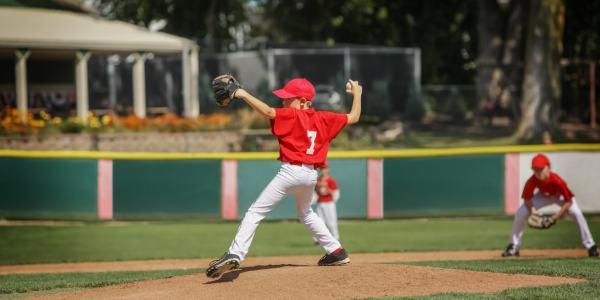
Should You Give Last-Minute Advice?
Do you have a few last minute pointers for your kid before the big match on nailing that serve? Save it.
That’s the best way to help your kids succeed, according to Junior Tennis Players’ Preferences for Parental Behaviors, a study published by the Journal of Applied Sport Psychology.
Youth tennis players are affected by even subtle changes in support from their parents during matches, and benefit more from general encouragement and support than from technical advice before or during a match.
In the study, published last month, focus groups of competitive youth tennis players between the ages of 12 and 15 answered questions about parental involvement. The tennis players who participated in the study compete either regionally, nationally or internationally and train an average of 15 hours a week.
Tennis is unlike team sports in which individual players may blend in. Instead, individual players perform on a pedestal. For kids, that pedestal can be a demanding one that exposes flaws and weaknesses.
The kids said they benefited from supportive parents who focused on effort rather than performance.
“I hate when my parents they, they look at your first match and then they say, ‘Oh your second match is this, and then your third . . .'” said one tennis player. “Like they expect you to win all the time.”
The kids questioned also felt that advice from parents before or during a match was distracting. Only those whose parents had previously competed at a high level in the sport said they felt like they benefit from parental advice.
Practical advice does benefit youth, however. Kids felt that general advice and support such as match preparation (including diet, stretching and warming up) was by-and-large helpful.
The focus groups also concluded that parents who emphasize performance rather than effort only add to the stress level of youth. Those who worried about what their parents would say after a match suffered more during those matches, the focus groups said.
“I don’t mind if my parents yell at me [after a match] because I didn’t try,” one tennis player said. “But what I don’t like is [if] parents would yell at you but you tried and just didn’t play well.”
The report also found that many kids are aware of subtle changes in their parents during matches. Kids in the focus group reported that they were aware through changes in posture, facial expressions and tone of voice whether their parents were pleased with their performance.
The focus groups informed those conducting the study that these changes become most apparent once they start losing, and typically have a negative effect on their game.
Kids rely on their parents for support before, during and after tennis matches, the report concluded. Parents’ attitudes toward their kids’ performance is readily apparent even during matches.
What should parents take away from the study? Kids do want their parents to be involved and supportive in their sports. But they draw the line when it comes to performance-related advice and feedback.
In terms of tennis, kids notice verbal and non-verbal changes in attitude from their parents. Consistent encouragement and support is the best way to help your child succeed and have fun on the court.
Article By Matt Hanlon
Related Sports Psychology Articles
- Why Young Athletes Quit Sports
- Helping Sports Kids When You’re A Parent and Former Athlete
- How To Prepare Athletes Mentally Before a Game
*Subscribe to The Ultimate Sports Parent Podcast
*Subscribe to Peak Performance Sports on Youtube
Download a free sports psychology report to improve your mental game!
Sports Psychology Coaching for Young Athletes

One-on-one mental performance coaching is the fastest and most effective method to improve your athletes’ mental game, boost their performance, and make lasting changes. And as a bonus, parents learn what to say to help young athletes feel confident and thrive in sports. Please call us at 888-742-7225 with your questions.
